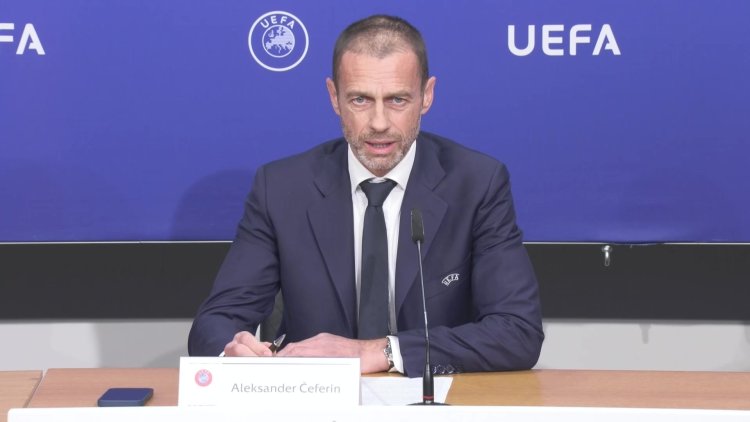UEFA adopts new regulations to replace financial fair play

UEFA approved new licensing and "sustainability" regulations to replace its existing Financial Fair Play (FFP) rules, allowing European clubs to make bigger losses than before while bringing in caps on spending on wages and transfers.
As expected, European football's governing body decided to overhaul the FFP rules that were introduced in 2010 in order to reduce spiralling club debts across the continent.
FFP's limitations had been exposed by the emergence of state-held superpowers like Manchester City and Paris Saint-Germain, while huge losses incurred by the coronavirus pandemic left poorer clubs with little room for manoeuvre.
"The biggest innovation will be the introduction of a squad cost rule to bring better cost control in relation to player wages and transfer costs," UEFA president Aleksander Ceferin announced following a meeting of the body's executive committee.
UEFA will now allow clubs to report losses of 60 million euros ($65.5m) over three years rather than 30 million euros previously, and the permitted figure will even reach 90 million euros for a club "in good financial health".
However, that relaxation of the rules is combined with the new ceilings on wage spending.
There was never any possibility of bringing in a specific salary cap like in North American sports because UEFA has 55 member countries and must contend with European Union and national labour and competition laws.
Yet under UEFA's new regulations clubs will be forced to limit spending on player and staff wages, transfers and agents fees to 70 percent of total revenues by 2025/26.
The ceiling will drop as current contracts expire: 90 percent of club income in 2023/24, followed by 80 percent the season after and then 70 percent.
"Before the pandemic, the average ratio was under 70 percent," said Andrea Traverso, UEFA's director of financial sustainability.
Then the health crisis led to losses over two seasons of about seven billion euros, causing that ratio to rise.
Ceferin said breaches of the new rules "will result in predefined financial penalties and sporting measures".
The size of the fines will depend on the extent to which clubs have crossed the threshold, with that money then redistributed among the well-behaved -- in line with the idea of a "luxury tax" championed in the past by Ceferin.















